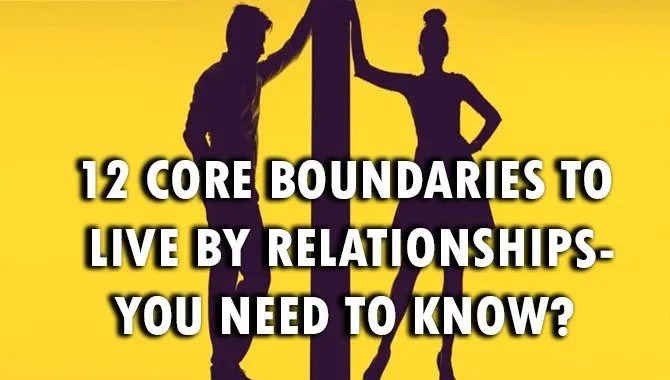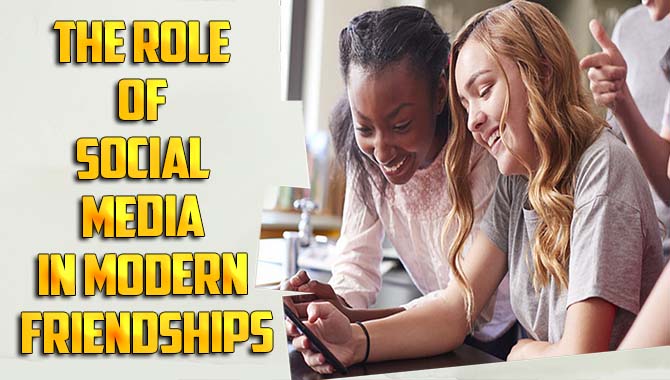Discover the most effective ways to talk and listen in any relationship. Essential “how-to” communication quotes offer simple, powerful insights to build understanding and connection. Learn key phrases and attitudes to express yourself clearly and hear others openly, strengthening bonds with friends, partners, and family.
Talking and truly hearing each other can feel like a puzzle, especially when emotions run high. Do you sometimes wish there were magic words to make your partner understand, or a simple guide to knowing what to say? You’re not alone! Many of us struggle to express our needs or truly grasp what the other person is feeling. It can lead to misunderstandings, frustration, and distance. But strong relationships are built on open, honest, and respectful communication. This article will guide you through essential quotes that unlock the secrets to better communication, offering straightforward advice you can use right away to improve your connections.
Why “How to Communicate” Quotes Matter in Relationships
Communication is the heartbeat of any relationship, whether it’s with a romantic partner, a dear friend, or a family member. When we communicate effectively, we build trust, solve problems, and deepen our connections. But how exactly do we achieve this? Simply put, it’s about more than just talking; it’s about understanding, empathy, and the willingness to be heard and to hear.
Quotes about communication can act like little wisdom bombs. They’re concise, memorable, and often distill complex ideas into simple truths. They can serve as helpful reminders when we’re in the thick of a conversation, prompting us to pause, reflect, and choose our words—or our listening—more wisely. They offer a fresh perspective when we’re stuck in a rut, and they can inspire us to be more intentional about how we connect with others.
Think of them as handy tools in your relationship toolbox. When you’re facing a communication challenge, a well-chosen quote can be like a guiding light, showing you a path forward. They can help us remember the core principles of healthy interaction, like honesty, respect, and vulnerability. They remind us that clear communication isn’t just about avoiding conflict; it’s also about actively building a stronger, more loving bond.
Essential Principles of Relationship Communication
Before diving into specific quotes, let’s explore the fundamental principles that make communication work in any relationship. These are the building blocks that great communication is made of.
1. Honesty and Transparency
Being truthful, even when it’s difficult, is crucial. It builds trust, which is the bedrock of any healthy connection. Transparency means being open about your feelings, thoughts, and intentions, rather than hiding things or being deliberately vague. This doesn’t mean sharing every single thought that pops into your head, but rather being genuine about what matters.
2. Active Listening
This is more than just hearing words. Active listening involves giving your full attention to the speaker, understanding their message, responding thoughtfully, and remembering what was said. It means putting away distractions, making eye contact, nodding, and asking clarifying questions to ensure you’re truly getting their point of view.
3. Empathy and Understanding
Try to see things from the other person’s perspective. Empathy is about acknowledging and sharing the feelings of another. Even if you don’t agree with their viewpoint, understanding why they feel a certain way can go a long way in resolving conflict and fostering connection.
4. Respect and Kindness
Always treat each other with respect, even during disagreements. This means avoiding insults, blaming, and hurtful language. Kind words and a gentle tone can diffuse tension and create a safe space for open dialogue.
5. Clarity and Directness
Say what you mean and mean what you say. Vague communication can lead to confusion and misunderstandings. While kindness is important, being direct about your needs and feelings is essential for effective communication.
6. Vulnerability
Being willing to open up and share your true feelings, even when it feels scary, is a sign of strength. It allows your partner to get to know the real you and fosters deeper intimacy and trust.
“How to Communicate in a Relationship” Quotes to Inspire and Guide
The best advice often comes in small, potent packages. Here are some essential quotes that capture the essence of good communication in relationships, with a focus on practical application.
On Speaking Your Truth
“We need to learn to speak our hearts, not just our minds.” — Unknown
This quote highlights the importance of emotional expression. It’s not enough to just state facts or logical points; sharing your feelings allows for true connection. When you’re talking, try to include phrases like, “I feel…” or “When this happened, I felt…” rather than accusatory statements like, “You always…”
“The most important thing in communication is hearing what isn’t said.” — Peter Drucker
This is a powerful reminder that communication involves subtext, body language, and unspoken emotions. Pay attention to the tone of voice, facial expressions, and what someone might be feeling but not articulating directly. Ask gentle questions like, “Is there something else on your mind?” or “How does that make you feel?”
“Clarity is kindness.” — Unknown
Being clear and direct with your needs and thoughts, in a kind way, prevents confusion and misunderstanding. Instead of hinting or expecting your partner to read your mind, state your needs simply. For example, instead of sighing repeatedly when you want help with chores, say, “I’m feeling overwhelmed with the housework, would you be able to help me with X?”
On Listening and Understanding
“Seek first to understand, then to be understood.” — Stephen Covey
This is a cornerstone of empathy. Before you jump in to explain your side, truly listen to what the other person is saying. Try to put yourself in their shoes and understand their perspective and feelings. Reflect back what you hear by saying, “So, if I understand correctly, you’re feeling X because of Y?”
“Listening is a magnetic and strange thing, a creative force. When the soul attracts people it is because it is listening.” — Carl Rogers
This emphasizes that truly listening makes people feel valued and understood, drawing them closer to you. When your partner or friend is talking, put down your phone, make eye contact, and give them your undivided attention. This simple act can work wonders!
“The difference between a good conversation and a bad one is usually about 50 percent listening.” — Unknown
This is a straightforward reminder that conversation is a two-way street. If you’re doing all the talking, or if you’re not truly absorbing what the other person is saying, you’re missing out on connection. Aim for a balance and make sure you’re actively engaged when it’s their turn to speak.
On Conflict and Connection
“In any relationship, the price of emotional honesty is the risk of vulnerability.” — Brené Brown
Brené Brown’s work often highlights how crucial vulnerability is for authentic connection. Being honest about your feelings, even when it makes you uncomfortable, is how deep bonds are formed. This means sharing your fears, your insecurities, and your true desires.
“The greatest communication problem is we do not listen to understand. We listen to reply.” — Stephen Covey
This builds on the “seek first to understand” principle. It’s easy to wait for your turn to speak rather than truly processing what the other person is saying. When you find yourself formulating your response while they are still talking, pause and refocus on their words. Really try to grasp their intent.
“When someone is angry, listen to them, don’t just wait for them to stop talking.” — Unknown
Anger often signals hurt, fear, or unmet needs. Instead of getting defensive or shutting down, try to listen to the underlying message. Acknowledge their feelings: “I can see you’re really upset about this.” This doesn’t mean you agree with why they are angry, but you validate their emotion, which can help de-escalate the situation.
Practical Communication Tools and Techniques Inspired by Quotes
Quotes offer wisdom, but how do we translate that wisdom into action? Here are some practical tools and techniques you can start using today, inspired by the principles we’ve discussed.
1. The “I Feel” Statement
This technique, rooted in speaking your truth, helps you express your emotions without blame. The structure is simple: “I feel [emotion] when [specific behavior] because [impact on you].” For instance, “I feel hurt when you cancel plans last minute because I look forward to spending time with you.” This is much more constructive than “You always flake on me!”
2. Reflective Listening (Paraphrasing)
This actively demonstrates you’re listening and trying to understand. After your partner speaks, rephrase their message in your own words. “So, what I’m hearing is that you’re feeling overwhelmed with work and need some quiet time when you get home?” This gives them a chance to correct any misunderstandings and ensures you’re both on the same page.
3. The Timeout Technique
When conversations become too heated, it’s okay to pause. Agree beforehand to take a break if things get overwhelming. You can say, “I’m feeling too emotional to discuss this right now. Can we take a 20-minute break and come back to this when we’re both calmer?” This prevents saying things you might regret.
4. Non-Verbal Communication Awareness
Your body language speaks volumes! Maintain open postures (uncrossed arms), make appropriate eye contact, and use nods to show you’re engaged. Be mindful of your partner’s non-verbal cues too. Are they fidgeting? Looking away? These can signal discomfort or an unwillingness to engage. A study from UCLA published in the Journal of Personality and Social Psychology found that nonverbal signals account for a significant portion of how messages are perceived.
5. Asking Open-Ended Questions
Instead of questions that can be answered with a simple “yes” or “no,” ask questions that encourage elaboration. For example, “What are your thoughts on this?” or “How did that experience make you feel?” rather than “Are you okay?”
Building Trust Through Consistent Communication
Trust isn’t built overnight; it’s cultivated through consistent, reliable communication. When you consistently show up, listen actively, and speak honestly and with kindness, you build a reservoir of trust. Each positive communication experience strengthens the foundation of your relationship.
Consider this table illustrating how different communication styles impact trust:
| Communication Behavior | Impact on Trust (Positive) | Impact on Trust (Negative) |
|---|---|---|
| Active Listening | Builds confidence that you care and value their perspective. | Leads to feeling unheard, disrespected, and unimportant. |
| Honesty & Transparency | Creates a secure environment where feelings are safe. | Fosters suspicion, doubt, and insecurity. |
| Respectful Disagreement | Shows that the relationship is strong enough to withstand differences. | Can make the other person feel attacked or devalued, damaging the bond. |
| Vulnerability | Deepens intimacy and strengthens the bond through shared humanity. | Can be met with judgment or dismissal, leading to emotional withdrawal. |
| Consistent Effort | Reinforces commitment and reliability. | May signal a lack of care or investment in the relationship. |
When trust is high, partners feel safer to be themselves, to take risks in the relationship, and to navigate challenges together. If trust has been eroded, consistent and intentional communication is the path to rebuilding it. It’s about showing up with integrity, even when it’s tough.
Navigating Difficult Conversations with Grace
Difficult conversations are inevitable. Whether it’s about money, family, or unmet expectations, the way you approach them can make or break your relationship. The key is preparation and a commitment to the relationship’s well-being over winning an argument.
Preparing for a Difficult Conversation
- Choose the Right Time and Place: Avoid discussing heavy topics when one or both of you are tired, stressed, or distracted. Find a private, calm setting.
- Define Your Goal: What do you hope to achieve? Is it understanding, a specific change, or simply expressing your feelings? Having clarity helps you stay focused.
- Mentally Rehearse: Think about what you want to say, and how you want to say it. Focus on “I” statements and avoid assumptions.
- Anticipate Their Perspective: Try to imagine how they might react and what their concerns could be. This helps you respond with more empathy.
During the Conversation
- Start Gently: Begin by stating your intention and positive regard for the relationship. “I want to talk about [topic] because our relationship is really important to me, and I want us to feel good about it.”
- Use “I” Statements: (As mentioned before) “I feel…”
- Listen Actively and Empathically: Truly try to hear and understand their point of view. Validate their feelings even if you disagree with their actions or opinions.
- Stay Calm: If emotions escalate, use the timeout technique. The Gottman Institute, a leading authority on relationship research, emphasizes that “Masters of relationships let their partners know they are listening and validating their concerns, even when they disagree.” You can learn more about their communication strategies on their research blog.
- Focus on the Issue, Not the Person: Avoid personal attacks or bringing up past grievances unrelated to the current issue.
After the Conversation
- Summarize and Agree on Next Steps: If a resolution was reached, make sure you both understand what was agreed upon.
- Express Appreciation: Thank your partner for their willingness to talk and work through the issue, even if it was difficult.
- Follow Through: If you agreed to make changes, make sure you follow through to reinforce trust.
Common Communication Pitfalls to Avoid
Even with the best intentions, we can fall into communication traps. Being aware of these common pitfalls can help you steer clear of them.
- Making Assumptions: Believing you know what your partner is thinking or feeling without asking.
- Mind Reading: Expecting your partner to know what you want or need without you expressing it.
- Interrupting: Cutting someone off before they’ve finished their thought.
- Being Defensive: Reacting to feedback or criticism by making excuses or blaming others, rather than considering the other person’s perspective.
- Stonewalling: Withdrawing from a conversation, shutting down, or refusing to engage. This is a major predictor of relationship dissatisfaction, according to relationship researchers like John Gottman.
- The Four Horsemen: Dr. John Gottman famously identified criticism, contempt, defensiveness, and stonewalling as behaviors that are toxic to relationships. Avoiding these can significantly improve communication.
Here’s a quick look at how these pitfalls can manifest:
| Pitfall | Example | How to Counter it |
|---|---|---|
| Making Assumptions | “I know you’re mad at me because you’re quiet.” | Instead, ask: “I’ve noticed you seem quiet, is everything okay?” |
| Mind Reading | (Silently expecting partner to do something without asking) | Clearly state your needs: “Could you help me with X?” |
| Interrupting | (Cutting off partner mid-sentence) | Practice active listening; wait for a pause before responding. |
| Being Defensive | “It’s not my fault! You always…” | Try: “Okay, I hear you. Help me understand what I could have done differently.” |
| Stonewalling | (Walking away or giving the silent treatment) | Use the timeout technique: “I need a break, but I want to come back to this.” |
FAQ: Your Questions About Relationship Communication Answered
Q1: How can I get my partner to communicate more openly?
A1: Create a safe space by listening without judgment. When they do share, show appreciation. Share your own feelings first, demonstrating vulnerability, which can encourage them to do the same. Remember, change takes time and consistency.
Q2: What if







